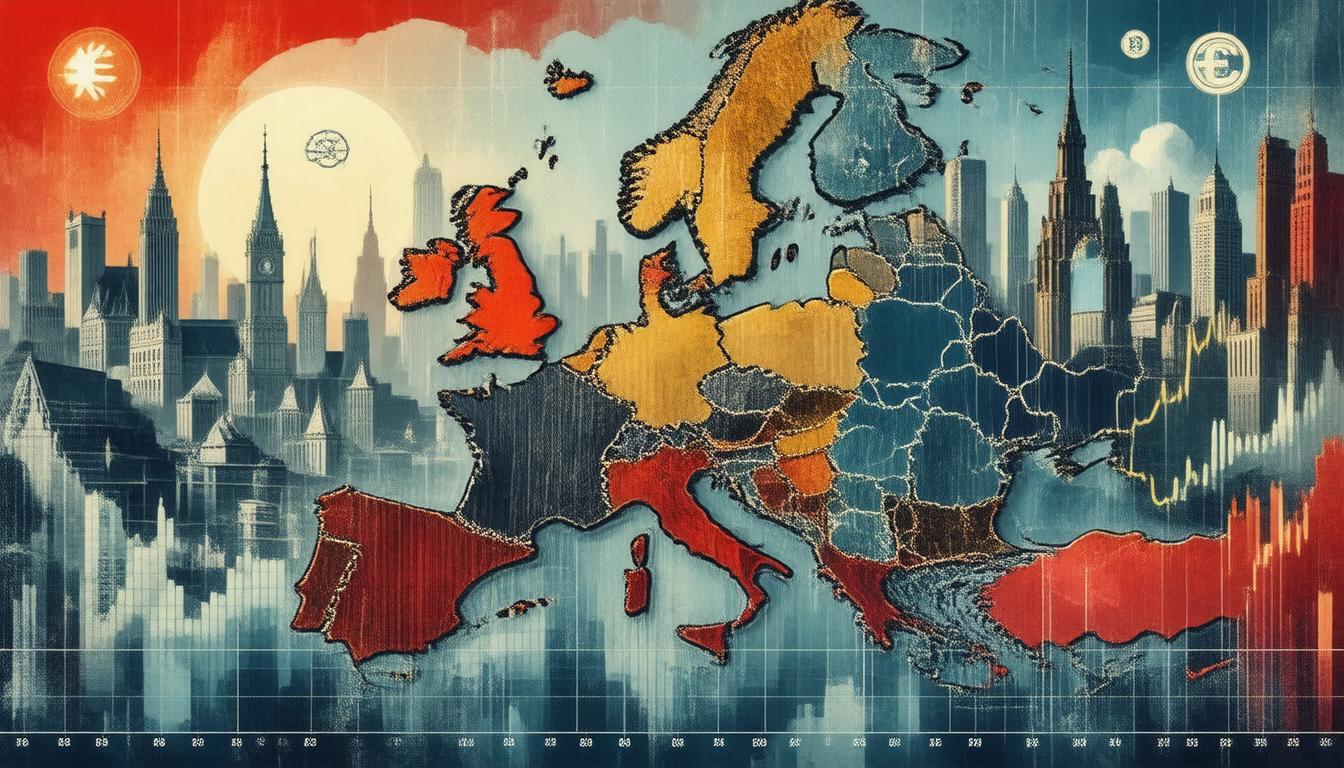Germany is at a crucial crossroads as it approaches a pivotal election on February 23,
2025.
With an economy under pressure from various factors, including increased international competition, high energy costs, and rising interest rates, the stakes have never been higher.
In this article, we will explore the economic landscape leading up to the election, the anticipated impact of potential corporate tax cuts, and what these changes could mean for both the German economy and key industries.
Key Takeaways
- Germany’s economy faces significant challenges with a potential contraction for three consecutive years, highlighting a structural downturn.
- The upcoming election may lead to a coalition government that could implement corporate tax cuts, positively impacting key industries.
- Uncertainty among voters could greatly influence the election outcome and future economic policies in Germany.
Economic Landscape and Challenges Facing Germany
The economic landscape in Germany is poised for significant transformation as the nation heads towards an essential election on February
23.
This election carries heightened stakes due to a challenging economic backdrop that could see the German economy contract for the third consecutive year in 2025, an unprecedented scenario since reunification.
Current forecasts project a modest -0.1% growth for Germany, creating a stark contrast with the Eurozone’s anticipated
1.1% growth and a global rate of
3.2%.
Factors contributing to this economic strain include fierce international competition, surging energy costs, high interest rates, and overarching uncertainty, all of which have led to a notable decline in German industry.
As BDI President Peter Leibinger points out, these fundamental weaknesses have not been adequately addressed by the current government, culminating in a political crisis resulting in the dissolution of the Bundestag.
Polling suggests that the conservative opposition, spearheaded by Friedrich Merz, is on track to emerge victorious in the upcoming snap election; however, a considerable contingent of undecided voters presents a substantial degree of uncertainty.
Analysts at Morgan Stanley predict a coalition government formation involving the center-right CDU/CSU and center-left SPD, which may pave the way for potential corporate tax reductions over the next four years.
This shift could have a profound impact on corporate earnings, particularly benefiting major players like Scout24, Porsche AG, Commerzbank, Deutsche Bank, MTU Aero Engines, and BMW, with estimates indicating a potential 72 basis point increase in earnings by 2026 and a projected rise of up to
1.9% by
2028.
Potential Impact of Corporate Tax Cuts on Industry
The implications of these tax cuts could reach beyond traditional corporate metrics, suggesting a ripple effect across various sectors of the German economy.
Businesses poised to benefit from such reforms may reinvest their savings into research and development, thereby fostering innovation and enhancing competitiveness.
This potential surge in investment could not only bolster corporate growth but also create jobs, invigorating local and national economies that have struggled against the headwinds of rising costs and international competition.
Enhanced corporate profitability might further lead to increased shareholder returns and higher dividends, attracting more investment capital into Germany’s markets.
As the election approaches, stakeholders are closely watching how these discussions evolve, with the expectation that the resulting policies will shape the economic landscape not just in the short term, but for years to come.















